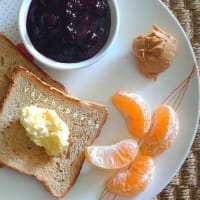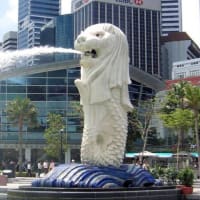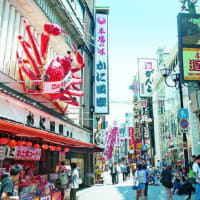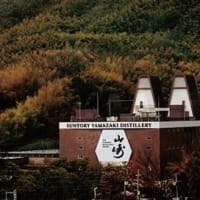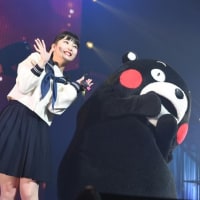
福島原子力発電所の事故の影響を受けた「セシウム汚染牛」問題を取り上げます。今回も、ある英文テクストを読んだり聞いたりするときに、そのテクストの背景となる知識がいかに重要かということを体感していただきたいと思います。ということで、少し長い本編の前に関連する短い記事を1本紹介。
放射線被曝自体の危険性については、海外の報道を見ても日本の一部の「健康オタク」ほどには大騒ぎはしていません。そして、海外でも問題になっているのは、それが「本当に危険かどうか」ということよりも、一応、国際的な基準を踏まえて出来ている国の放射線被曝許容基準を守ることが可能だったのに日本の民主党政権はそれを怠ったこと。つまり、「セシウム汚染牛」の発生は後智恵ではなくて十分予想できたわけだから、それについての対処も十分に可能だったはずだよね、という点でしょうか。
この<印象>や<感想>については本編記事を読んだ上で、読者の皆さんがご自分でご判断ください。いずれにしても、<迷惑>であり<可哀想>なのは一生懸命に育った牛さん達であることは間違いないでしょうけれどもね。ちなみに、私自身の放射線被曝に関する考えについては下記拙稿をご参照いただけるようでしたら嬉しいです。
◆脱原発論は日本の地政学的特殊性を無視する暴論?
・事故を乗り越え福島とともに進む☆原発推進は日本の<天命>である
http://blog.goo.ne.jp/kabu2kaiba/e/77bb139a31d8909f3387c203afc4f45d
・ドイツの大腸菌騒動
-脱原発の<夢物語>は足元の安心安全を確保してからにしたらどうだ
http://blog.goo.ne.jp/kabu2kaiba/e/6207784b62ce34386bfc691a78658034
◆放射線の危険性論は科学的-、法学的-、哲学的に成立し得ない、
反捕鯨論とパラレルな文化帝国主義的の教条ではないでしょうか
・放射線被曝の危険性論は霊感商法?
http://blog.goo.ne.jp/kabu2kaiba/e/7c286f3b86f2d6f2b8bd054af6bc3212
・魔女裁判としての放射線被曝危険論
http://blog.goo.ne.jp/kabu2kaiba/e/54614e99fb98e2b28bd96c1022c1e029
あっ、ちなみに、「健康オタク」の「otaku」は最早「英単語」ですが、それはまだアニメとか漫画に限定して使われる場合が多い。よって、「健康オタク/健康マニア」は「a health freak, maniac, nerd, nut, geek」を使います。尚、これらは後ろに行くほど悪いニュアンスを帯びますので、相手の<症状>を見て適宜使い分けてください(笑)
Iwate may face similar ban amid radiation spread
Miyagi beef cattle shipments barred
The government ordered a complete ban Thursday on all shipments of beef cattle from Miyagi Prefecture after detecting radioactive cesium above the government limit in some local cattle.
The government is also considering placing a similar ban on beef cattle from Iwate Prefecture, where five cattle from Ichinoseki and Fujisawa have already been found contaminated with radioactive cesium exceeding the limit of 500 becquerels per kilogram.
That decision is expected to come next week, sources said.
The discovery of beef cattle from various prefectures in northeastern Japan with elevated levels of radioactive cesium has caused widespread concern.
The cattle were fed straw contaminated by fallout from the crippled and leaking Fukushima No. 1 nuclear plant.
Miyagi is the second prefecture after Fukushima to be given orders to suspend shipments of beef but likely won't be the last.・・・
(137 words)
【出典:Japan Times, July 29, 2011】
【予備知識補充テクスト語彙】
face:直面する, ban:禁止令/禁止する(cf. ban on:~に関する禁止令/規制), amid:~の最中に/まっ只中に, radiation:放射能, beef cattle:食用牛(cattleは、police「警察(当局)」と同様に単数形で複数扱いされる名詞です), shipment:出荷, bar:禁止する(cf. barrningは「~を除いて」とexceptと同じ意味の英字新聞頻出用語です),
detect:~だということが露見する/判明する, radioactive cesium:放射性セシウム/比較的強い放射線を出すセシウム, place a ban on:~に関する禁止令を出す(cf. place an order「注文をする」, lift or remove an ban on「~に関する禁止令を解除する」), contaminate:汚染する, becquerel(s):ベクレル(ある物質が出す放射線の強さの単位,ちなみに、シーベルト(Sievert(s))とは人体に影響を与える放射線の量の単位のこと。例えば、ある部屋の照明の明るさを言う場合、電球の明るさの程度に喩えられるのがbecquerel、光源からの距離をも加味してその部屋の中のある地点の明るさに喩えられるのがSievertと言える、鴨),
be expected to-V:~するものと予想されている, sources:情報源, feed:餌を与える, fallout:放射性降下物/死の灰/招かれざる(悪しき)副産物的な結果, cripple:機能障害を与える, leak:ガス/水/放射能/内部情報などを外部に漏らす, suspend:中断する/延期する/停止する
【予備知識補充テクスト和訳】
放射能の拡散が続く中、岩手県に対する規制も不可避になる模様
宮城県の肉牛は出荷禁止
政府は、木曜日【2011年7月28日】、宮城県からの肉牛の出荷を全面的に禁止した。宮城県産の肉牛から政府の基準値を超える放射性セシウムが測定されたことを受けたもの。
また、政府は岩手県に対しても同様の規制を導入する模様だ。というのも、一関と藤沢から出荷された5頭の肉牛が、基準値であるキロ当たり500ベクレルを超える放射性セシウムに汚染されていることが分かったためである。
関係筋の情報によれば、岩手県に対して禁止措置を発令するかどうかの判断は来週にも行なわれるとのことだ。
日本の北東部の各県で、基準値を超える放射性セシウムに肉牛が汚染されていることが相次いで明らかになっていることで不安が広がっている。
放射能に汚染された肉牛は、事故で機能不全に陥り放射能漏れを引き起こしている福島第一原子力発電所から降り注いだ放射性物質に汚染された藁で飼育されたもの。
宮城県は、福島県に次いで肉牛の出荷禁止措置を受けた二番目の県になったわけだけれども、宮城県がこの禁止措置の適用を受ける最後の県になることは、最早、ないものと思われる。(後略)
ということで、以下、本編記事行きます。少し長めのテクストですが、
次のTOEIC/TOEFLのテストに向けて、楽しく頑張ってくださいね。
Government tries to play down fears, cites tight import curbs overseas
Contaminated beef may have been sent abroad
The government said it can't rule out the possibility beef contaminated with radioactive material has been exported, as consumers and lawmakers accused authorities of negligence on food safety.
The government on Tuesday imposed a ban on beef shipments from areas near the crippled Fukushima No. 1 nuclear plant after finding 637 cattle were fed hay containing radioactive cesium. Supermarkets including the country's biggest, Aeon Co., said the beef was sold in Tokyo and other cities.
"We cannot completely rule out the possibility" contaminated beef was also sold abroad, Yuichi Imasaki, the deputy director of the farm ministry's meat and egg division, said Wednesday. "The chances are very low" because most countries have tightened rules on Japanese beef imports or banned them, he said.
The ban comes more than four months after the earthquake and tsunami wrecked the Fukushima No. 1 power station, causing the worst nuclear fallout since the Chernobyl disaster. Concerns about food contamination before Tuesday's ban cut beef exports by 16 percent in the last two months, while hotels and restaurants in the region, including Asian luxury chain Shangri-La, dropped Japanese seafood from its menu.・・・
Tainted hay was given to cattle in 19 farms in Fukushima, Niigata and Yamagata prefectures. Twelve cases of beef contamination were detected in eight prefectures, according to a statement from the Health, Labor and Welfare Ministry.
Some beef from the 637 cattle containing cesium exceeding government standards was sold to consumers, said Kazuyuki Hashimoto, an official at the food monitoring division of the Tokyo Metropolitan Government. Aeon, Seven & I Holdings Co. and Marui Group said this week they had sold the tainted beef.・・・
The U.S. has not allowed beef imports from Japan since April 21, 2010, because of the possibility they may harbor foot-and-mouth disease, Matt Herrick, a spokesman for the U.S. Department of Agriculture, said in an email.
The danger from less than rigorous testing of produce leads to contaminated products on supermarket shelves and that creates a lack of confidence in all products, said Peter Burns, a nuclear physicist and former Australian representative on the United Nations scientific committee on atomic radiation.
"Like with Chernobyl, you don't have people buying anything from Ukraine because it might be contaminated," he said.
"I would have thought that within two or three months they would have formed some sort of task force who has somebody in charge," said Burns, who has worked on radiation safety experience for 40 years.
Products including spinach, mushrooms, bamboo shoots, tea, milk, plums and fish have been found to be contaminated with cesium and iodine as far as 360 km from the crippled Fukushima plant. Tokyo Electric Power Co. said June 14 it found cesium in milk tested near another nuclear reactor site about 210 km from the damaged plant.
"The contamination occurred because the government did not take appropriate measures," Yoko Tomiyama, chairwoman of the Consumers Union of Japan, said in an interview Tuesday. "They should take responsibility for their negligence."
About 437 kg of beef from a farm in Minamisoma, 30 km from the Fukushima plant, was consumed in eight prefectures, according to the Tokyo Metropolitan Government, which detected the first case of tainted beef from the farm earlier this month.
As much as 2,300 becquerels of cesium per kilogram were detected in the contaminated beef, according to a statement Monday from the health ministry. The government limit is 500 becquerels per kg. Rice hay produced in Fukushima Prefecture was found to contain as much as 690,000 becquerels, exceeding the 300-becquerel limit, according to the local government office.
For people who have eaten the beef, "the overall long-term implications of this are extremely minor in terms of potentially harmful health effects," said Burns. However, the damage can end up "destroying whole industries," he said.
Fukushima is the 10th-biggest cattle-producing region in Japan, representing 2.7 percent of total production. The nation exported 541 metric tons of beef worth \3.4 billion last year, including premium "wagyu" meat.
Japan exported 49.1 tons of beef in May, 50.6 tons in April and 58.6 tons in March, according to the farm ministry's data. Vietnam, Hong Kong and the U.S. were the biggest markets for Japanese beef in the year through March 2010.
"We are currently tracking all beef shipped from Fukushima Prefecture. So far we've found no case of contaminated beef exports," said Tomohiro Hagiya, an official at the Health, Labor and Welfare Ministry's food safety department.
Japan imported 204,543 tons of beef in the five months that ended May 31, an increase of 11 percent from the same period last year, according to the agriculture ministry.
(766 words)
【Bloomberg/Japan Times, July 22, 2011】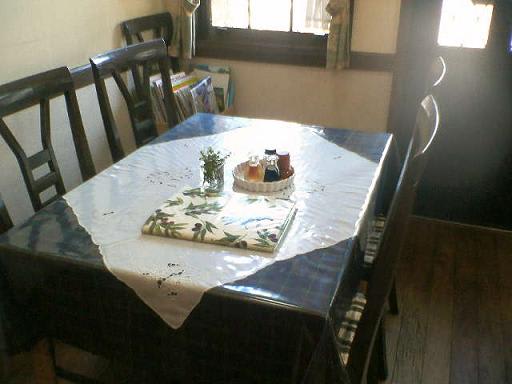
<続く>










